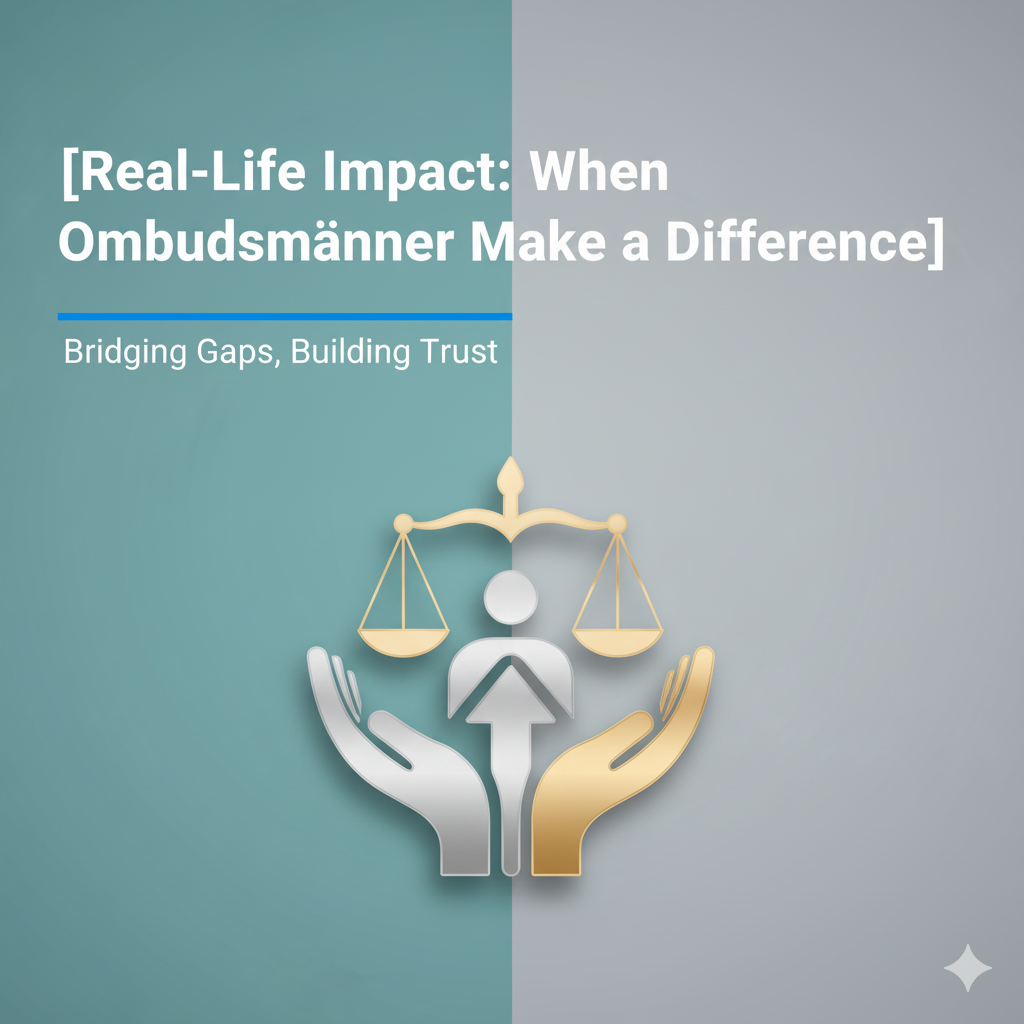Ombudsmänner: Why These Watchdogs of Fairness Still Matter
Have you ever felt lost in a maze of government rules, endless forms, or decisions that seemed unfair? You’re not alone and that’s exactly why ombudsmänner exist. Think of them as the bridge between everyday citizens and the institutions that govern us. Their mission? To make sure your rights are respected, your concerns are heard, and justice doesn’t get buried under bureaucracy. In this guide, we’ll explore what ombudsmänner do, why they matter, and how they’ve become essential in keeping public life transparent and fair.
Who Exactly Are Ombudsmänner?
At their core, ombudsmänner are independent figures who investigate complaints about public institutions. If a government agency mishandles your case, ignores your rights, or acts unfairly, the ombudsman steps in. But they’re not just complaint-handlers. They also look at the bigger picture spotting patterns of injustice and pushing for reforms so the same problems don’t keep repeating.
A Quick Look Back: Where It All Began
The concept of the ombudsman was born in Sweden in 1809. The idea was simple but powerful: citizens should have someone independent to turn to when government actions feel unjust. Fast-forward to today, and you’ll find ombudsmänner (or their equivalents) in dozens of countries each adapted to local needs. From New Zealand to Canada, these roles have expanded beyond just individual grievances, tackling systemic issues like discrimination, corruption, and policy failures.
How Ombudsmänner Are Chosen and What They Do
Appointment methods differ worldwide. In some countries, parliaments elect it. In others, they’re appointed by heads of state. Regardless of process, independence is key because an ombudsman who isn’t free from political pressure can’t truly protect the people. Here’s what their work usually involves: Investigating complaints from citizens about unfair government decisions. Gathering facts and evidence talking to witnesses, reviewing documents, analyzing policies. Making recommendations that can lead to reforms, better accountability, and stronger institutions. Staying impartial so that both the citizen and the government know the findings are fair.
Why Independence Matters So Much
Imagine complaining about unfair treatment, only to find the person investigating works for the same institution you’re complaining about. Doesn’t sound very reassuring, right? That’s why independence is non-negotiable for ombudsmänner. Their ability to operate without interference is what makes people trust them. Neutrality ensures fair results, no matter who’s involved.
Real-Life Impact: When Ombudsmänner Make a Difference

History shows plenty of cases where it investigations led to real change: Housing Reform: In one country, residents complained about unsafe public housing. An ombudsman’s investigation uncovered neglect, forcing authorities to improve living conditions. Fairer Education: Another case involved discriminatory school admissions. Thanks to the ombudsman’s findings, new policies were introduced to promote equal access. These stories highlight a key point: ombudsmänner don’t just solve individual issues—they often spark broader reforms that benefit entire communities.
The Challenges They Face
Being a watchdog isn’t easy. it often work with limited budgets, making it hard to handle every case thoroughly. Many citizens don’t even know these offices exist, which limits their reach. And, of course, political pressure is a constant threat governments don’t always welcome scrutiny. Despite these challenges, their resilience keeps the system fairer than it would be without them.
Different Countries, Different Models
Every country has shaped the role differently: Sweden: Still the strongest, with broad authority. Australia: Uses state-level it for localized oversight. Canada: Has specialized ombudspersons for areas like children’s rights or healthcare. United States: The role varies by state and is often less formalized. Different approaches, same principle: citizens deserve accountability.
Looking Ahead: The Future of Ombudsmänner
As technology evolves, so does the role of it. Data analysis tools help them spot problems faster. International collaboration allows them to share best practices. And growing public demand for transparency means their influence is only set to expand.
Conclusion
It may not be in the headlines every day, but their work quietly shapes fairer societies. They give ordinary people a voice against powerful institutions, ensure justice isn’t drowned in red tape, and push governments to do better. In a world where bureaucracy can feel overwhelming, it remind us that fairness isn’t optional it’s essential. And as long as citizens need protection, these guardians of accountability will remain indispensable.
FAQS
What are ombudsmänner?
Ombudsmänner are independent officials who investigate complaints against government institutions to ensure fairness, transparency, and accountability.
Why are ombudsmänner important?
They protect citizens’ rights, resolve grievances, and push for reforms that improve trust and transparency in public institutions.
How are ombudsmänner appointed?
Appointment methods vary by country. Some are elected by parliament, while others are appointed by heads of state to remain impartial and independent
What issues can ombudsmänner investigate?
They handle complaints about unfair government actions, systemic injustices, policy failures, and institutional misconduct.
Do all countries have ombudsmänner?
No, but many democracies have adopted the role. Each country tailors its ombudsman system to its governance style and cultural needs.







